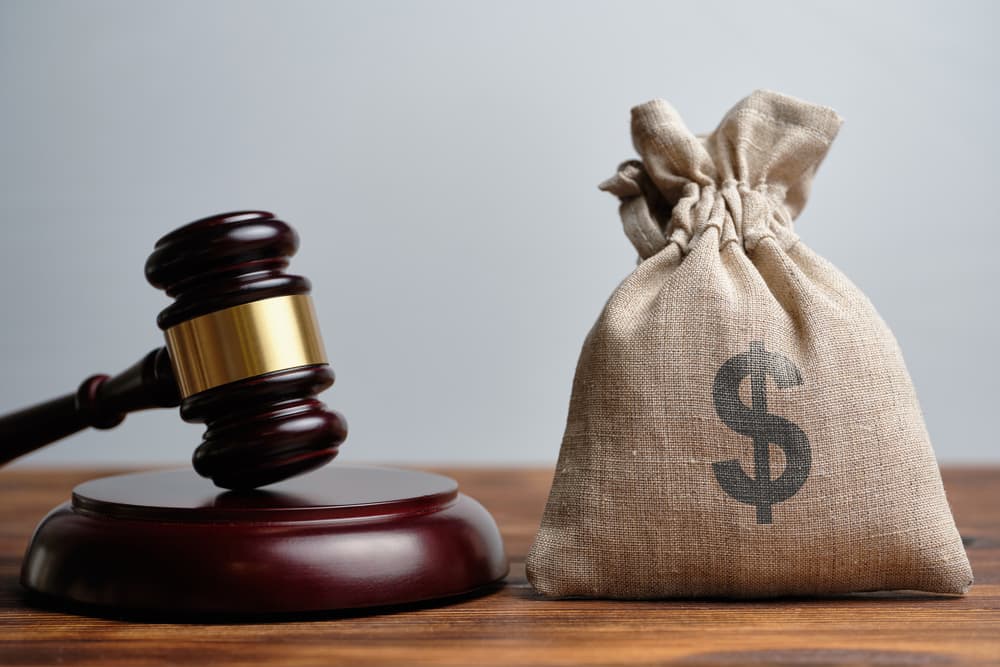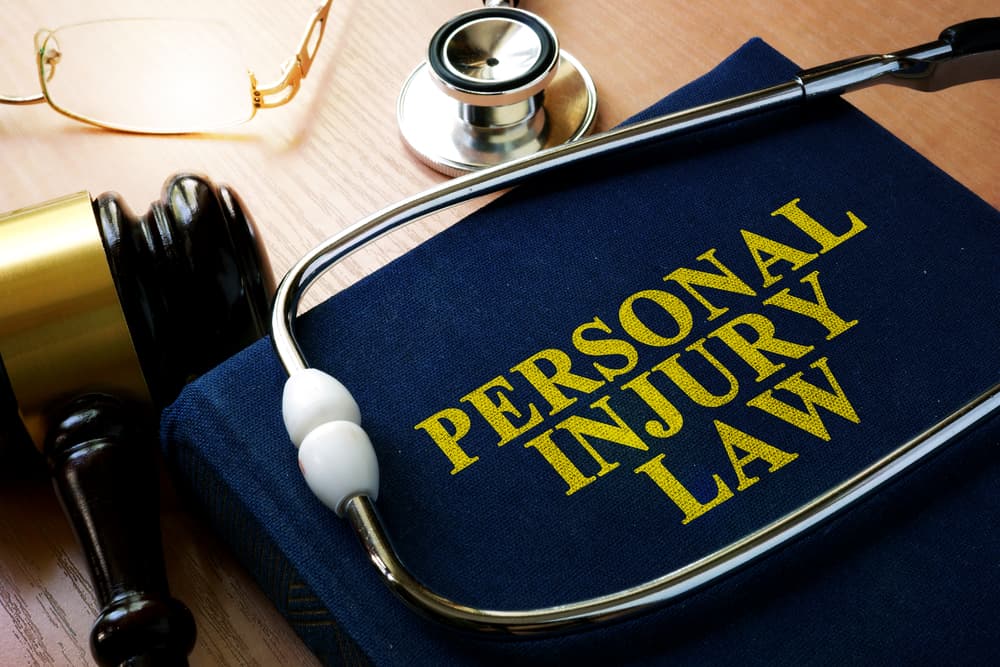Car accidents happen every day and range greatly in severity. Some collisions are mere fender benders with little to no resulting injuries or damage, while others are much more serious, leaving victims facing substantial injury and extensive property damage.
When you’re involved in a collision and suffer injuries and losses, you can file an insurance claim to pursue fair compensation. However, if your expenses and losses are substantial, you may exceed available insurance limits. But what does this mean for you and your financial recovery?
It’s essential to understand what insurance policy limits are and how they impact compensation for a car accident. A skilled car accident lawyer can evaluate the limits available in your claim and, if necessary, provide avenues to pursue additional monetary recovery.
What are Insurance Limits and Why Do They Matter?

You may be familiar with the concept of insurance and how it works to provide compensation in the event of an accident. However, many accident victims don’t realize the importance of insurance limits and their effect on compensation claims.
Simply put, insurance limits represent the maximum amount an insurance company will pay out for a claim. These limits are based on the state minimums and the policyholder's chosen coverage.
Almost every state requires drivers to carry a minimum amount of car insurance. For example, in Nebraska, drivers must purchase the following coverage:
- $25,000 per person and $50,000 per accident for bodily injury liability coverage
- $25,000 for property damage liability coverage
- $25,000 per person and $50,000 per accident for uninsured motorist bodily insurance coverage
- $25,000 per person and $50,000 per accident for underinsured motorist bodily insurance coverage
Every state has different requirements, but generally, drivers must carry coverage for bodily injury and property damage. Some states also require drivers to carry additional insurance, like uninsured and underinsurance coverage, but in some states, these are optional. It is worth noting, though, that insured drivers also have the option to purchase higher premiums if they choose.
Using the above example, if a Nebraska driver carried just the minimum required coverage, their policy limits for bodily injury coverage per person will be those listed. So, if this driver caused an accident and the victim suffered injuries worth $75,000, it will be considered “exceeding limits” because the victim's damages are above the limits outlined in the driver’s policy.
Ways to Determine the Other Driver’s Policy Limits
When you’re trying to determine how much compensation you can obtain for your collision claim, it’s particularly helpful to know how much money is available based on the at-fault driver’s policy. Insurance companies are often unwilling to disclose the amount of coverage to others who are not the policyholder. Therefore, you can potentially find out about insurance limits by:
- Asking the at-fault driver: When you exchange information at the scene of the collision, you can ask the other driver for their insurance details. If they grab this information from their insurance card, the details might be there. Otherwise, if the at-fault driver is approachable, you can contact them and ask about their policy coverage.
- Getting help from your insurer: When you file a claim with your insurance company, the adjuster can obtain and share this information.
- Sending a demand letter: Should the insurance company refuse to give you this information, you can send a demand letter to the insurer requesting to settle the claim for full policy limits. If you want to take this route, it’s best to have a car accident lawyer draft and send the letter on your behalf for more favorable results.
- File a lawsuit: If you file a lawsuit against the at-fault driver, the insurance company will have to disclose policy details.
Getting information concerning the at-fault party’s insurance policy limits can be challenging in some cases. When you’re struggling to get the information you need, seek help from a qualified car accident attorney. A lawyer has the right experience and resources to acquire pertinent information to build your claim.
How Likely Is It for an Accident Claim to Exceed Insurance Limits?
An accident exceeds insurance limits when the total value of your losses is more than the available policy limits. So, for example, if you have substantial medical expenses and serious property damage, your damages are likely to be more than what insurance limits can provide.
The odds of a collision claim exceeding policy limits vary not only on the severity of the resulting losses but also on the amount of coverage available. If the at-fault driver has a higher limit than that of state-required insurance minimums, the chances of exceeding those limits are lower.
Still, no matter the level of coverage a driver has, if an accident results in excessive damages, there is always a possibility of exceeding policy limits.
Available Compensation for Car Accident Claims

It’s crucial to understand the damages that are available for victims injured in car accidents. The kinds of damages you can obtain greatly depend on the specifics of your collision and situation. Some of the damages you may be entitled to receive include medical expenses, lost income, and property damage.
It’s essential to note that getting economic damages through an insurance claim is usually easier than non-economic damage. Economic damages are those that represent your tangible, quantifiable losses. These losses are easier to calculate, as they are often documented. For example, medical expenses can be readily established through medical records, but proving your pain and suffering is more difficult.
Technically, the insurance company should compensate you for your non-economic damages, including pain and suffering. But because non-economic damages represent intangible, subjective losses, they’re not as easy to prove and calculate. The insurance company may give you a hard time concerning non-monetary losses.
The damages you can receive from your insurance policy claims depend on numerous details. A car accident lawyer can calculate your damages and provide better guidance so you know what to expect.
First-Party vs. Third-Party Insurance Claims
When you’re involved in a car accident and need to file an insurance claim, there are certain details to consider. One of the most important details is state fault law. How your state dictates fault in a collision influences the type of claim you can file.
If your accident occurred in a fault state, you can go after the at-fault driver’s insurance. This opens the door to filing a third-party insurance claim through their insurance for compensation. Third-party claims can provide financial recovery for things like medical treatment and damage to your property.
On the other hand, if your accident happened in a no-fault state, insurance claims are handled a bit differently. Instead of filing a claim through the at-fault driver’s insurance, you will file a first-party claim through your own insurance.
Drivers in no-fault states are required to carry personal injury protection (PIP) insurance so that, in the event of a collision, each driver goes through their own insurance, regardless of fault. PIP insurance only covers certain losses, like medical expenses and lost income, but it does not cover property damage.
The type of insurance claim you file can substantially affect how you go about pursuing additional compensation should your losses exceed policy limits.
Options for Pursuing Additional Compensation if Your Claim Exceeds Insurance Limits
When you suffer damages in an accident, and your losses are more than what’s available through the at-fault party's insurance policy, you may have multiple options to seek more money. Your options are based on specific details, such as state law and the circumstances.
Underinsured Motorist Coverage
Underinsured motorist coverage (UIM) is a type of auto insurance that offers additional protection if you’re in an accident with a driver who has insufficient insurance. Every state handles this type of coverage differently. Some states make it mandatory for all drivers, while others make it optional.
UIM coverage essentially works as a supplement should the at-fault driver’s insurance not adequately cover your losses. When you’ve reached policy limits and still need more compensation, you can file a claim through your underinsured motorist policy.
Your UIM insurance will cover any additional expenses and losses you may have up to your own policy limits. Underinsured motorist coverage typically covers bodily injury, like medical expenses, lost income, and property damage, which takes care of repair and replacement costs for your vehicle.
Umbrella Insurance
Sometimes, drivers like to feel extra protected and purchase supplemental insurance policies. This additional insurance is called “umbrella insurance,” as it shields policyholders a little extra, just like an umbrella in the rain.
Umbrella insurance protects a policyholder’s existing limits and coverages from other policies. Should the at-fault driver have umbrella insurance, you can file another claim to obtain more compensation for your injuries and property damage.
Personal Injury Lawsuit

When your losses exceed insurance limits, you can file a lawsuit against the at-fault driver. Lawsuits are different from insurance claims. When you file a lawsuit, you’re involving the court.
Personal injury lawsuits are based on negligence. To have a successful case, you must prove the at-fault driver negligently caused your accident. Strong evidence can substantiate your claims and strengthen your case.
You can file a lawsuit in both fault and no-fault states. However, certain no-fault states may have certain requirements you must meet before pursuing further compensation through a lawsuit, so it’s important to know how your state works.
A majority of personal injury lawsuits settle. When you settle your case, it means both sides have come to a mutually beneficial agreement. Should your case not settle before going to trial, you can present your case before a judge and let them decide the fate of your case.
Look to Other Responsible Parties
In some collisions, more than one party is liable. Identifying all responsible parties can broaden your sources of compensation and help ensure you obtain the monetary recovery you need to adequately cover your damages.
For example, a distracted driver is at fault for your collision, but a hazardous road condition contributed to the collision. In this situation, you could have a claim against the driver, but also the governmental entity responsible for maintaining the roads.
Protecting Your Rights to Pursue Financial Recovery After an Accident
While you do have the right to pursue financial recovery after an accident, you need to actively protect this right. Your actions following your auto collision can notably impact your ability to file a claim and obtain compensation.
Report Your Accident
When you’re injured in a car wreck, you should report it to law enforcement. In fact, in many states, it’s a requirement to notify police, specifically when accidents involve bodily harm and property damage.
Failing to report your accident within a reasonable time can negatively affect your claim.
Get Medical Attention
Medical records play a large role in collision claims. Without them, you’re unlikely to recover much, if anything at all, for your injuries and related expenses.
As soon as possible after your accident, seek medical care. Doing so can strengthen your claim but also allow you to begin the healing process.
Notify Your Insurer
Even if you’re not responsible for causing your accident, you should notify your insurance company. Contact them as soon as possible to let them know what’s occurred with their insured vehicle.
Consult a Car Accident Lawyer
Discussing your case with a knowledgeable car accident attorney is one of the most beneficial things you can do for your claim. When you hire an attorney, they can handle your claim from beginning to end, determining where to seek compensation and helping you obtain full and fair financial recovery.
Don’t Wait Too Long
Waiting too long to take action can result in losing your right to acquire monetary recovery. Therefore, as soon as you’re able, consult an attorney to begin working on your claim.
Exceeding Insurance Limits Doesn’t Mean It’s the End

Often, when a victim’s losses exceed insurance policy limits, they throw in the towel, thinking it’s the end of the road. In many cases, it’s not, and additional options may be available.
Following a car accident, take your case to a local personal injury lawyer. A personal injury attorney can safeguard your rights and best interests and do whatever is necessary to get you adequate compensation for your losses.